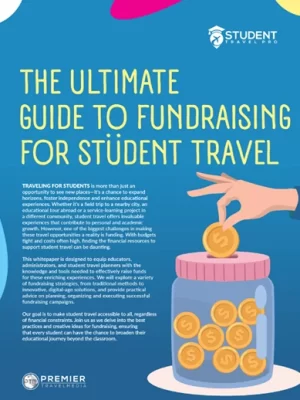God’s Little Piece of Paradise
A Costa Rican folktale tells of how, after creating the Earth, God parceled out different regions of the globe to various peoples: the Eskimos received the frozen north, while those built for heat were given Africa, and so on. When everyone had been assigned, the humble campesino José remained. Realizing he had overlooked José, God gifted him a special piece of paradise He had reserved for Himself—thus, as legend goes, Costa Rica was born.
A Tropical Crossroads of Biodiversity
Nestled between Nicaragua and Panama in the Central American isthmus, Costa Rica is roughly the size of West Virginia. Despite its small footprint, it boasts:
- Twelve life zones across diverse landscapes, including dry plains, marshes, lowland jungles, and four mountain ranges with seven active volcanoes.
- 5% of the world’s biodiversity, including 850 bird species, more than 30,000 insect species, 208 mammals, and over 9,000 plant species.
Thanks to its compact size, student travel groups can experience Costa Rica’s vast ecological offerings in relatively short distances and minimal travel time.
Commitment to Environmental Preservation
Since the late 1960s, Costa Rica has protected over 30% of its national territory in parks, preserves, and wildlife refuges. The tica/tico (Costa Rican) culture widely regards maintaining a healthy environment as essential to the country’s well-being. Students visiting for ecological or environmental education will discover ample opportunities to learn about and participate in conservation efforts.
Climate and Accessibility
Costa Rica has only two main seasons:
- Dry Season (November–April): Ideal for anyone looking to escape winter temperatures elsewhere.
- Green (Rainy) Season (May–October): Witness the tropics in action, when rainfall rejuvenates the lush landscapes.
The country is also relatively close to the United States and accessible via direct flights from various major cities. Political stability, along with a long-standing absence of a military, has helped Costa Rica build a reputation as a safe, welcoming destination. According to the New Economics Foundation’s Happy Planet Index at the time of original publication, Costa Rica qualified as the happiest country on the planet.
Tourism Standards and Quality Assurance
For over two decades, tourism has been a leading source of income in Costa Rica, spurring advancements in infrastructure and service:
- Small Rural Hotels: Many are run by community cooperatives that adhere to standards ensuring guests receive comfortable accommodations and cultural insights.
- Professional Tour Guides: Under the Costa Rican Tourism Board (ICT), guides must be licensed, with required coursework in natural history, geography, culture, CPR, first aid, and more.
Reputable tour operators often provide additional internal trainings that cover group management and teen travel specifics, offering a safe and enriching experience for student groups.
A Vibrant Cultural Exchange
Costa Rica has long been a crossroads for diverse cultures. The resulting blend of ideas and backgrounds has inspired a wide variety of lodging—from ecolodges and community posadas to five-star resorts—and an extensive array of educational programs.
Endless Adventures in a Small Package
Whether you’re seeking high-octane activities or more laid-back exploration, Costa Rica offers it all (just without snow!):
- Water Sports: Surfing, rafting, kayaking (rivers, lakes, oceans), windsurfing, stand-up paddleboarding, and more.
- Land Adventures: Hiking (short day treks or multi-day expeditions), zip lining, canopy tours, canyoneering, horseback riding, grass boarding, and cave spelunking.
- Nature Immersion: Wildlife observation in national parks and reserves teeming with exotic fauna and flora.
For student groups, these activities provide hands-on learning experiences in biology, ecology, and adventure leadership.
A Paradise for Student Travel
Costa Rica’s compact size, commitment to the environment, welcoming culture, and vast range of adventures make it an ideal destination for student travel programs. Stepping out of the familiar and into this tropical paradise may even redefine one’s sense of happiness—after all, this nation did earn the nickname God’s little piece of paradise for good reason.








